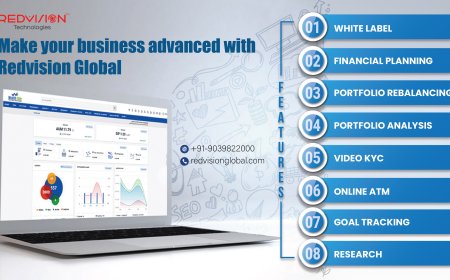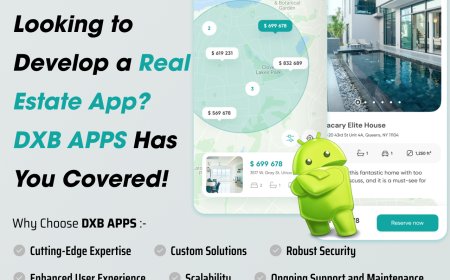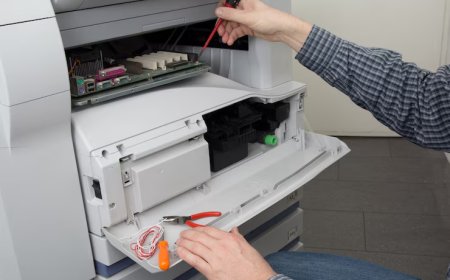How EHR Software Simplifies Healthcare Record Keeping
Discover how EHR software simplifies healthcare record keeping by digitizing patient data, reducing paperwork, and streamlining access. Learn how it enhances data accuracy, improves coordination, and supports better decision-making for efficient patient care.

Electronic Health Record (EHR) computer applications revolutionized the administration of patient records by doctors. Paper forms are done away with and there is one database, and therefore, EHR software simplifies entering, storing, retrieving, and conveying from department to department easy. It grants registered medical personnel instant access to up-to-date correct information on the patient as and when required, thereby speeding up care integration and also administrative ease. With clinical documentation features, e-prescribing, lab integration, and billing, EHR systems streamline workflow and redundancy. Health care providers can thus have quality time with patients with ample time, and EHR software is an essential part of the health care practice in this era.
What is EHR Software?
EHR (Electronic Health Record) Software is a computer electronic program through which patient medical histories are captured, stored, and retrieved. In comparison to paper-based documentation, EHR Software provides the medical personnel with access to the patient's history, diagnosis, medication, lab test results, and treatment in real-time. The software facilitates decision-making, enhances clinical processes, and enhances provider communication. The EHR software also connects with other healthcare systems such as lab systems, pharmacies, and bill systems for optimal flow. EHR software, with coordination and management of the patient records, automatically keeps the records to a large degree, standardizes them, and offers timely and safe healthcare service.
Core EHR Software Modules
A successful Electronic Health Record System Software is in some inherent clinical, administrative, and financial automation routines. These core modules are offering an overview of patient care and for overall better healthcare organizations' efficiency.
Patient Registration
Captures demographics, insurance, and contact. Provides the basis for the production of patient records and enables error-free and instant entry of data.
Clinical Documentation
Is one of the strongest ones, supports real-time clinical notes, treatment planning, capture of diagnosis and symptoms by clinicians. Guides care tightly and delivers precision to the patient record.
Lab and Imaging Integration
Automates lab and imaging machines to automatically order tests and retrieve results, reducing paperwork and error, and treatment delay.
Appointment Scheduling
Streams scheduling with real-time calendar, reminder, and reschedule functionality.
Billing and Coding
Removes errors and insurance claim coding compliance rates.
Patient Portal
Delivers patient medical history, lab results, medications, and communication with physicians.
There is a growing requirement of EHR Software customization in countries like India. More and more clinics, doctors, and hospitals choose the services of EMR Software Development to create customized software programs based on their specific requirements. Be it the cost-free EMR Software solutions or the sophisticated premium solutions, the perfect EMR Software is one where each of the modules is installed completely in entirety without any such breakages in between.
How EHR Software makes healthcare record management easy
EHR Software makes healthcare record management easy by making the complex streamlining and combining of patient data into one, secure website. It provides end-users with access to active medical history, laboratory work, medications, and billing, reduced paper and errors, and increased clinical productivity. Using EMR Software, EHR systems make documentation easy, automate administrative tasks, and support interoperable interdepartmental communication. For those who wish to know about what is EHR software, it is a productivity software through which patients receive better care. All the healthcare providers today have been pushed into using the best EHR software and Best EMR software as a measure to keep the records properly and for an increase in overall healthcare productivity.
Pimary Benefits for Clinics and Hospitals
EHR software actually helps hospitals and clinics with improved patient care and automation. It makes the information more accurate, minimizes paperwork, and offers faster access to the patient record. Ideal EHR software development also helps the providers with customization of the workflow and addition of modules like billing, laboratory tests, and e-prescription. EMR Software also offers better care coordination for the care teams, which offers improved treatment results. Free EMR Software is used by most of the facilities in search of cost without losing functionality. Furthermore, custom EMR software development facilitates scalability, security, and compliance and therefore there should be available EHR software for digital transformation of the healthcare sector.
conclusion
EHR software is among the alternatives to efficient management of health records through automation and integration of patient information. It assists clinical practice, enhances precision, and provides immediate access to important medical information. EHR systems reduce administrative costs by way of e-prescribing, laboratory interfaces, billing, and patient portals. Installation of EHR software in clinics and hospitals globally strengthens the efficacy, safety, and patient-centered provision of health care. As intelligent and networked systems gain popularity, EHR software is an application of high value with which to recast the delivery of healthcare providers to provide and capitalize on patient data.



































